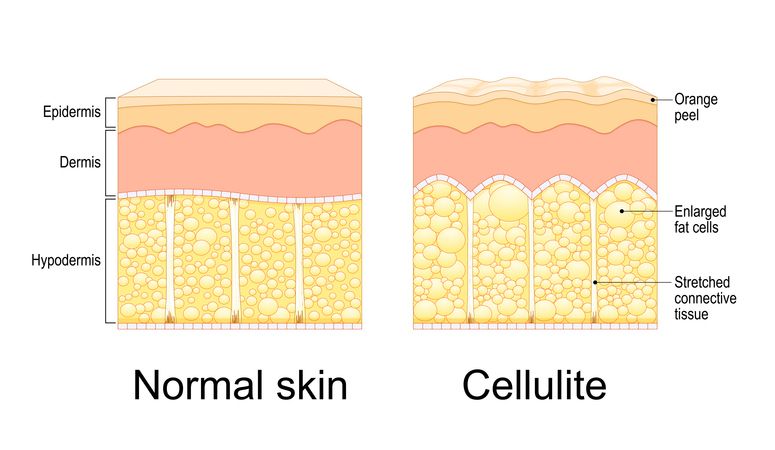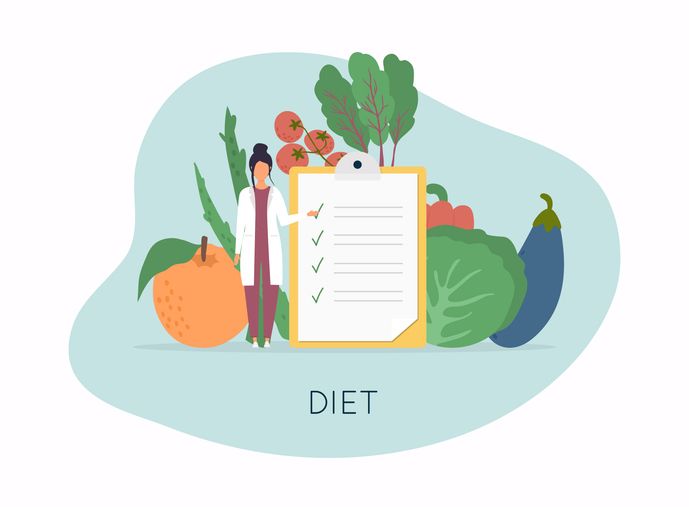
Author: Natalie Ng|Updated: 29 April 2025
A lot of what people believe about weight loss just isn’t true. You don’t need to eat breakfast to boost your metabolism. Eating late at night doesn’t automatically make you gain weight. And doing crunches every day won’t make belly fat disappear. What really matters is how many calories you eat and the quality of your food. A healthy weight depends more on consistent choices—like sticking to a well balanced diet and paying attention to your calorie intake—than on strict schedules or quick-fix fad diets. There’s also a lot of confusion around things like skipping meals, eating carbs, or avoiding foods like brown rice and olive oil. Many of these ideas are outdated, not backed by science, and can even lead to poor weight management or health problems like digestive and kidney diseases. In this article, we’ll go through the most common myths about weight loss and explain what actually helps you lose weight and keep it off—without giving up your favourite foods or cutting out whole food groups. Keep reading to get clear, practical info that can help you eat healthier, feel better, and manage your weight in a realistic way.

The Truth About Breakfast and Metabolism
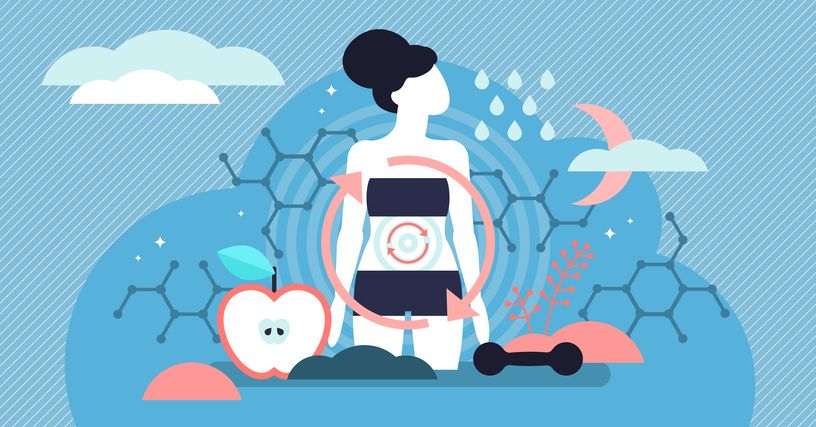
Many people think eating breakfast helps you lose weight by speeding up your metabolism. Some believe that skipping breakfast leads to weight gain or makes it harder to burn fat. But this idea isn’t backed by solid science.
Skipping Breakfast Doesn't Slow Your Metabolism
Your metabolism doesn’t shut down if you miss breakfast. Studies show that people who skip breakfast can still manage a healthy weight as long as their total daily calorie intake stays balanced. What matters is how many calories you eat overall, not the time you eat them.
Focus on Your Overall Eating Habits
If you're not hungry in the morning, you don’t need to force yourself to eat. Your body won’t gain weight just because you delay your first meal. Instead, focus on what you eat during the day—choosing healthy foods, eating fewer calories than you burn, and keeping your meals well balanced with enough essential nutrients.
For some, breakfast can be helpful—especially if it includes healthy fats, whole grains, or protein that supports more muscle mass and steady energy levels. But it’s not a rule you have to follow.
Healthy weight management comes down to energy balance: how many calories you consume vs. how many calories you burn. Whether you eat at 8 a.m. or 12 p.m. doesn’t change that.
Keep reading to learn more myths about weight loss, and how to choose a healthy diet that actually works.

Late-Night Eating and Weight Gain: Separating Facts From Fiction

You've likely heard that eating late at night leads to weight gain, but this common belief isn't entirely accurate. The truth is that your total daily calorie intake matters more than the specific time you eat those calories. While late-night eating can lead to weight gain if it causes you to exceed your daily caloric needs, there's nothing inherently fattening about consuming food in the evening hours.
Time vs. Calorie Intake
While many people believe eating late at night automatically leads to weight gain, the truth centers on total daily calorie intake rather than meal timing. Your body doesn't magically store more fat at night - it's about how many calories you consume versus burn throughout the entire day.
| Meal Time | Calories In | Weight Impact |
|---|---|---|
| Morning | 500 | No difference |
| Afternoon | 500 | No difference |
| Night | 500 | No difference |
You're free to eat when it fits your schedule, as long as you maintain a sensible caloric balance. What matters most is the quality and quantity of food you consume within your daily caloric needs. Don't let outdated myths about meal timing restrict your lifestyle - focus instead on creating sustainable eating habits that work for you.
Breaking Nighttime Eating Fears
Despite widespread beliefs about nighttime eating being harmful, research shows that eating after dark doesn't directly cause weight gain. What matters most is your total daily calorie intake, not when you consume those calories.
You won't automatically store more fat by eating late, and your metabolism doesn't substantially slow down at night. If you're hungry in the evening, it's perfectly fine to eat??just be mindful of portion sizes and food choices. The real problem with late-night eating often stems from mindless snacking while watching TV or choosing high-calorie comfort foods when tired.
Feel free to adjust your eating schedule to fit your lifestyle. Whether you prefer eating dinner at 6 PM or 9 PM, focus on your overall nutrition and calorie balance rather than arbitrary timing rules.
Read More
Book Now to Experience
S6 Body Sculpting Treatment
1 Minute Self-Registration
Date should not be before minimal date

Spot Reduction and Targeted Fat Loss: Why It Doesn’t Work

One of the most common myths about weight loss is the idea that you can burn fat in specific areas by training those muscles. People often do endless crunches hoping to lose belly fat, or arm workouts to reduce arm flab. But the truth is, your body doesn’t work that way.
The Reality of How Fat Loss Works
Fat loss happens across your entire body, not in isolated spots. You can’t control where your body decides to lose fat first. That depends on genetics, hormones, and your overall calorie deficit—not the type of exercise you do.
What Actually Happens When You Exercise
• Your body pulls energy from fat stores across your body, not just the area you’re training
• Fat cells shrink everywhere, not just near the muscles you're using
• You can build muscle mass in a specific area, but you won’t burn more fat there
• The body burns fat based on overall energy needs, not local effort
So, if you do hundreds of crunches, you’ll strengthen your core muscles—but if your goal is to lose fat, you won’t see your abs unless your overall body fat goes down through proper diet and total-body training.
Why Full-Body Workouts Are More Effective
If you want to lose weight, burn fat, and build more muscle mass, your best strategy is combining full-body strength training with a balanced calorie intake.
Here’s why full-body training works:
• It activates multiple muscle groups at once, which burns more calories
• It creates a stronger hormonal response, boosting metabolism
• It saves time by targeting the whole body in one workout
• It helps you build lean muscle, which helps burn more energy at rest
Good examples include squats, push-ups, rows, deadlifts, and brisk walking or strength circuits. These movements support better weight management, reduce body fat, and improve fitness.
Forget about trying to spot-reduce fat. Instead, aim for a smart mix of balanced meals, physical activity, and calorie control to see real results.

Carbohydrates and Their Role in Weight Management
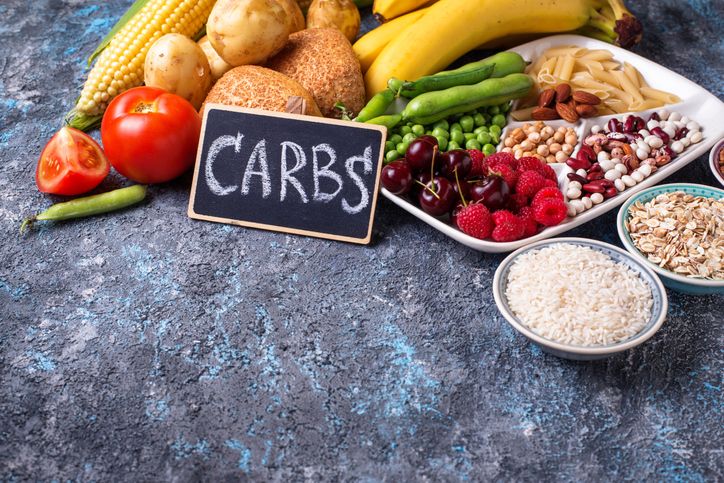
A common belief in weight loss circles is that eating carbs will make you gain weight. Many diets tell you to cut out bread, rice, or pasta to lose fat. But carbs aren’t the enemy. Your body needs them for energy, brain function, and keeping your digestive system working properly.
Not All Carbs Are the Same
Carbohydrates fall into two main categories: complex carbs and refined carbs. Understanding the difference is key for healthy weight management.
Good Carb Sources (Complex Carbs)
• Whole wheat bread
• Brown rice
• Oats
• Quinoa
• Sweet potatoes
• Whole grains
• Legumes and vegetables
These foods are rich in fiber, essential nutrients, and help you feel full longer. They support a balanced diet and can help you consume fewer calories by reducing cravings and keeping your energy steady.
Poor Carb Sources (Refined Carbs and Sugary Foods)
• White bread
• Sugary drinks
• Processed snacks
• Pastries and sweets
These foods are often stripped of nutrients and fiber. They digest quickly, spike your blood sugar, and leave you feeling hungry soon after—often leading to extra calorie intake and weight gain.
Why Cutting All Carbs Can Backfire
Low-carb diets may cause you to lose weight quickly at first, but much of that is water weight. Over time, extreme carb restriction can lead to fatigue, cravings, and even health problems, especially if you're not getting enough fiber or essential nutrients from whole food sources.
Your body also breaks down carbs into glucose, which fuels your muscles during exercise. If you do strength training or other physical activity, you need carbs to maintain performance and recover properly.
How to Include Carbs in a Healthy Diet
You don’t need to avoid carbs—you just need to choose better ones and manage your portions. Here’s how to do it:
• Fill at least half your grain intake with whole grains
• Time your carb intake around physical activity to boost performance and recovery
• Combine carbs with healthy fats or protein for longer-lasting energy
• Keep processed and sugary foods to a minimum
A well balanced diet with the right kind of carbs can help you shed pounds, build more energy, and support a healthy lifestyle.
Book Now to Experience
S6 Body Sculpting Treatment
1 Minute Self-Registration
Date should not be before minimal date

The Reality of Fat-Burning Foods and Supplements
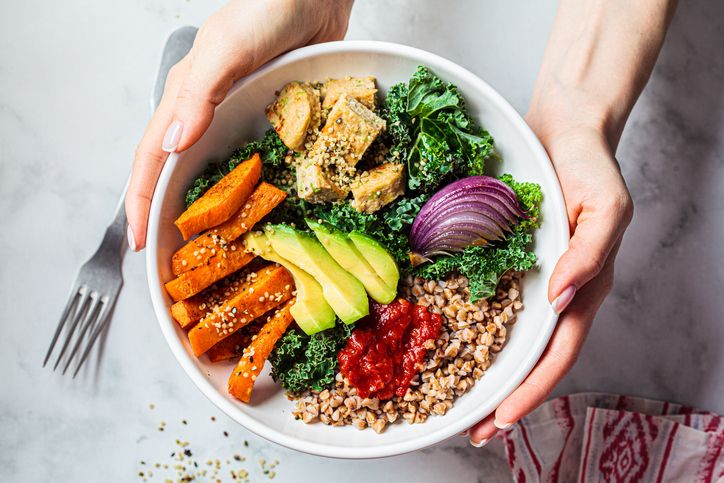
Walk into any health store or scroll through social media, and you’ll see endless products claiming to help you burn fat fast. From fat-burning teas to metabolism-boosting pills, these promises sound tempting—especially if you're trying to lose weight quickly. But the truth is, there's no food or supplement that can magically melt body fat on its own.
What Science Really Says
To lose fat, your body needs to be in a calorie deficit—this means you must consume fewer calories than your body uses. That’s the only proven way to shed pounds.
Some ingredients like caffeine or green tea extract may slightly increase the number of calories burned, but the effect is small and short-lived. These changes aren’t strong enough to make a major difference in your overall weight loss.
Most fat-burning supplements don’t do much. Some can even cause health problems like digestive issues, sleep disruption, or increased heart rate. In extreme cases, they may stress your kidneys or heart, especially if taken in high doses or alongside certain medications.
Why Whole Foods Work Better
Instead of wasting money on supplements, focus on healthy foods that support natural fat loss:
• Protein-rich foods like canned salmon, eggs, and beans help build and maintain muscle mass, which burns more calories
• Foods high in fiber—like vegetables, whole grains, and oats—keep you full longer and support your digestive system
• Healthy fats from foods like olive oil, nuts, and seeds can reduce cravings and help with energy balance
• Water keeps you hydrated and supports natural detoxification through your kidneys and digestive tract
These foods won’t “burn” fat directly, but they help you stay full, energized, and on track—making it easier to stick to your weight management plan.
Bottom Line
There’s no shortcut to fat loss. Skip the expensive supplements and stick with proven habits: eat a balanced diet, stay active, manage your calorie intake, and give your body the time it needs to adjust.

Exercise vs. Diet: What Matters Most for Weight Loss
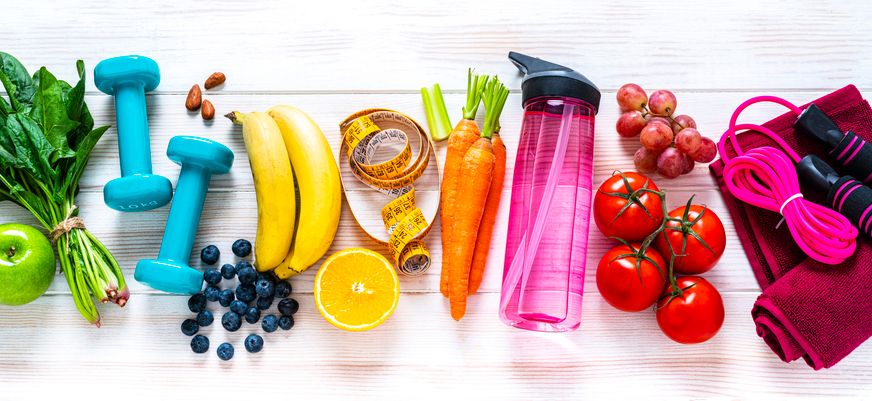
A lot of people think they can burn off a big meal with an intense workout. While physical activity is important for health, exercise alone won’t help you lose a lot of weight if your calorie intake is too high. The truth is, what you eat plays a much bigger role in weight management than how much you move.
Diet Has the Bigger Impact
Research shows that about 80% of weight loss comes from your diet. That’s because it’s easier to control how many calories you eat than to burn them off through exercise.
Here’s an example:
• One slice of cake = around 500 calories
• Brisk walking burns roughly 300 calories per hour
To “burn off” that cake, you'd need to walk for nearly two hours. It’s much easier to eat healthier or choose a smaller portion than to try and out-exercise it.
Why Exercise Still Matters
Even though diet is the main driver of weight loss, exercise still plays an important role. It helps you:
• Maintain or build muscle mass, which increases the number of calories burned at rest
• Improve your mood and reduce stress, which can help prevent emotional eating
• Support long-term weight maintenance
• Lower your risk of chronic illnesses like heart disease, digestive and kidney diseases, and diabetes
The most effective approach is to pair a calorie-controlled, well balanced diet with regular strength training and movement like brisk walking. You don’t have to overdo it—consistency matters more than intensity.
Focus on the Right Priorities
If your goal is to lose weight, start with what’s on your plate. Choose balanced meals, avoid extra calories from sugary snacks or drinks, and make sure you're getting enough essential nutrients. Then use exercise to support that progress—not to “undo” poor food choices.
Next, we’ll break down the truth about detoxes and cleanse diets, and why they often do more harm than good.
Book Now to Experience
S6 Body Sculpting Treatment
1 Minute Self-Registration
Date should not be before minimal date

Debunking Popular Detox and Cleanse Methods
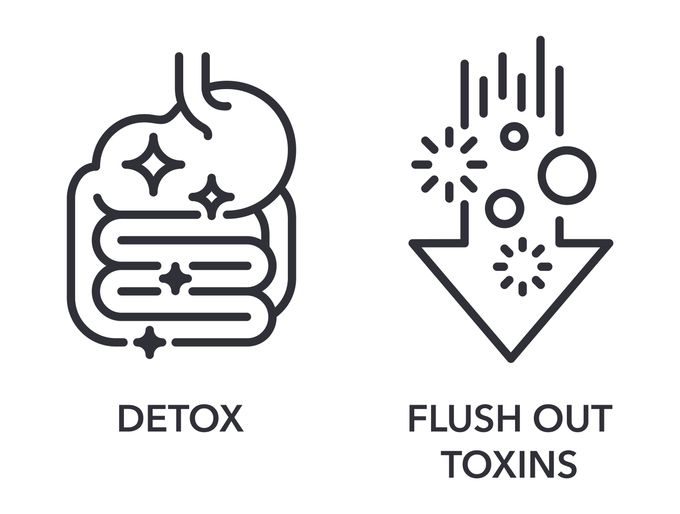
Detox teas, juice cleanses, and “cleansing” diets are everywhere. They're often marketed as a quick way to lose weight, boost energy, or “reset” your body. But despite the hype, most of these trends are based on myths about weight loss—and they can even harm your health.
Your Body Already Has a Detox System
You don’t need special drinks or extreme diets to “clean out” your body. Your digestive system, liver, and kidneys are already designed to filter and remove waste naturally. These organs work continuously to keep your body in balance and functioning properly.
No detox product will improve this process. In fact, many of them interfere with it.
The Problem With Detoxes and Cleanses
Here’s what often happens when people try these methods:
• Low-calorie cleanses can slow down your metabolism
• Juice cleanses remove fiber from fruits and vegetables, reducing the benefits for your gut and digestive system
• Detox teas often contain laxatives, which can lead to dehydration and harm your kidneys
• Most of the weight lost on a cleanse is just water weight, which returns once you eat normally again
These diets often lack essential nutrients, like protein and healthy fats, which are critical for muscle mass, energy balance, and a healthy lifestyle.
What Actually Works
If your goal is to lose weight or improve your health, focus on these simple, proven habits:
• Eat a well balanced diet with plenty of whole foods, complex carbs, lean protein, and healthy fats
• Drink water regularly to support your kidneys and digestion
• Get enough sleep and stay active through daily movement or strength training
• Avoid fad diets and focus on sustainable changes that help you consume fewer calories without extreme restrictions
Skipping meals or drinking only juice for days won’t help you keep off the weight. A long-term focus on healthy eating, proper calorie intake, and nutrient-rich foods will.

The Science Behind Meal Timing and Frequency
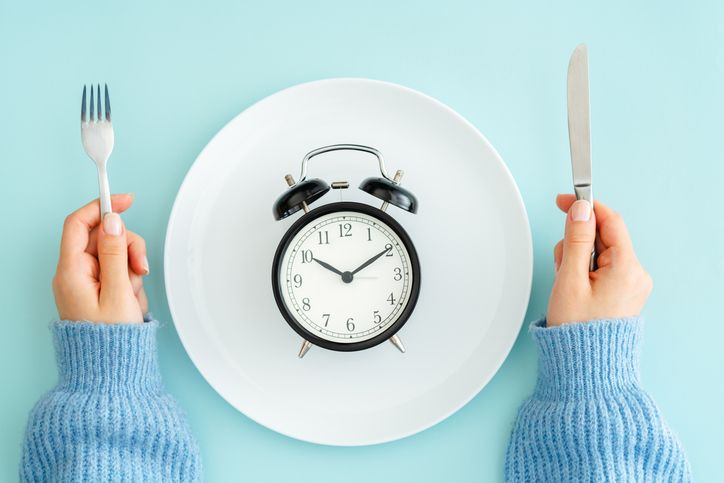
Many diet trends suggest that eating more often speeds up your metabolism or that you must eat every few hours to avoid weight gain. Others promote intermittent fasting as the best way to lose weight. So, what actually matters? It’s not how often you eat, but how much you eat—and what you eat—that makes the biggest difference.
Meal Timing Doesn’t Control Fat Storage
Your body doesn’t automatically gain weight if you eat later in the day or skip meals. Fat storage depends on your calorie intake, not the clock. Whether you eat three large meals or six smaller ones, the total number of calories consumed is what matters most for weight management.
Common Eating Patterns and Their Effects
| Meal Timing | Key Benefit | Impact on Weight |
|---|---|---|
| Morning meals | Can reduce overeating later | Helps control hunger |
| Regular intervals | Supports steady energy levels | May improve portion control |
| Evening meals | Can support recovery and sleep | No negative effect on fat |
Some people do better eating more frequently; others prefer fewer meals. What matters is choosing a routine that fits your lifestyle and helps you stay in a calorie deficit while still getting essential nutrients.
Does Intermittent Fasting Help You Lose Weight?
Intermittent fasting is popular because it limits the time you eat, which can naturally reduce extra calorie intake. Some people find it easier to stick to than traditional calorie counting. But it's not better or worse than other meal patterns—it just works for some people.
As long as you eat balanced meals and don’t overeat during your eating window, intermittent fasting can be part of a healthy routine. But it’s not required to lose fat or maintain a healthy weight.
Choose What Works for You
There’s no “perfect” eating schedule. What matters is:
• Staying consistent with your eating habits
• Keeping your total calorie intake in check
• Choosing healthy foods from every food group
• Avoiding high-calorie snacks, sugary drinks, and processed foods
Instead of focusing on when to eat, focus on how to eat healthier, meet your nutrient needs, and avoid extra calories. These habits will support long-term weight loss better than any strict eating schedule.

Boosting Results Beyond Diet: the S6 Body Sculpting Treatment
Understanding myths about weight loss—like spot reduction, skipping meals, or avoiding carbs—helps people make better decisions about their health. But even with a balanced diet, regular physical activity, and controlled calorie intake, many still struggle with stubborn fat in certain areas. That’s where New Beauty’s S6 Body Sculpting Treatment comes in.
What Is the S6 Body Sculpting Treatment?
The S6 Body Sculpting Treatment is a non-invasive fat reduction procedure designed to support your weight loss efforts, especially when traditional methods like healthy eating and strength training aren’t enough to target specific body parts. It uses low-energy bio-laser technology combined with vacuum suction to break down and remove subcutaneous fat.
This treatment is ideal for addressing common problem areas like the belly, thighs, arms, waist, calves, lower buttocks, and back—spots where fat loss can be slow even with a healthy diet and exercise.
How It Works
1. A therapist performs a body analysis to customize the treatment plan.
2. A handheld device delivers bio-laser energy into the deeper fat layers, breaking down fat cells by triggering fatty acid release.
3. Vacuum suction and massage follow, which speed up lymphatic drainage and boost metabolism, helping your body clear out broken-down fat more effectively.
At the same time, the treatment stimulates collagen production, which improves skin elasticity and prevents sagging as you shed pounds.
Why Add S6 to Your Weight Loss Plan?
While no treatment replaces a healthy lifestyle, S6 supports your goals by:
• Targeting areas where diet and exercise may not show visible results
• Speeding up fat metabolism for quicker body fat reduction
• Helping you maintain a more defined, sculpted shape without surgery
• Offering a comfortable, non-surgical solution with no downtime
• Supporting the skin by tightening and firming the treated areas
The S6 Body Sculpting Treatment doesn’t rely on fad diets or shortcuts. It works with your body, enhancing the natural fat-burning process when combined with balanced meals, consistent calorie deficit, and healthy habits.
If you’re already working on eating better and staying active but want a little extra help in shaping your body, this treatment can help you move closer to your goals—without the false promises of quick fixes or detox plans.
Book your appointment today for a full body contouring experience and see real changes where diet alone falls short.
New Beauty's S6 Body Sculpting TreatmentBook Now to Experience
S6 Body Sculpting Treatment
1 Minute Self-Registration
Date should not be before minimal date
FAQ
Does Drinking Cold Water Help Burn More Calories?
You might think drinking cold water is your secret weapon for burning calories. While your body does use some energy to warm up cold water to body temperature, you'll only burn about 8 extra calories per cup. That's not enough to make a meaningful difference in your weight loss journey. Don't let this myth derail your progress.
Why Do Some People Lose Weight Faster Than Others?
Your weight loss speed depends on several factors unique to your body and lifestyle. Your metabolism, genetic makeup, starting weight, and muscle mass all play vital roles. If you've got more weight to lose initially, you'll often see faster results. Your hormones, age, and even sleep patterns affect how quickly you drop pounds. Plus, your diet consistency and exercise intensity directly impact your progress.
Can Stress and Lack of Sleep Affect Weight Loss Progress?
Yes, stress and poor sleep can substantially impact your weight loss journey. When you're stressed, your body releases cortisol, which can increase appetite and lead to stress eating. Lack of sleep disrupts your hunger hormones - ghrelin and leptin - making you crave more high-calorie foods. You'll also have less energy to exercise and make healthy choices when you're tired and stressed.
Do Artificial Sweeteners Hinder Weight Loss Efforts?
While artificial sweeteners don't contain calories, they can still impact your weight loss journey. They may increase your cravings for sweet foods, alter your gut bacteria, and potentially lead to metabolic changes that affect how your body processes sugar. You're better off gradually reducing your overall sweetener intake and training your taste buds to appreciate natural flavors instead.
Is It Necessary to Weigh Yourself Daily for Successful Weight Loss?
You don't need to weigh yourself daily to lose weight successfully. While regular weigh-ins can help track progress, daily fluctuations from water retention, hormones, and other factors can be misleading and potentially discouraging. Instead, try weighing yourself once a week at the same time, under similar conditions. This gives you a more accurate picture of your true progress without obsessing over daily numbers.
Recommended Articles
COPYRIGHT© NEW BEAUTY MANAGEMENT LIMITED 2026. ALL RIGHT RESERVED.

